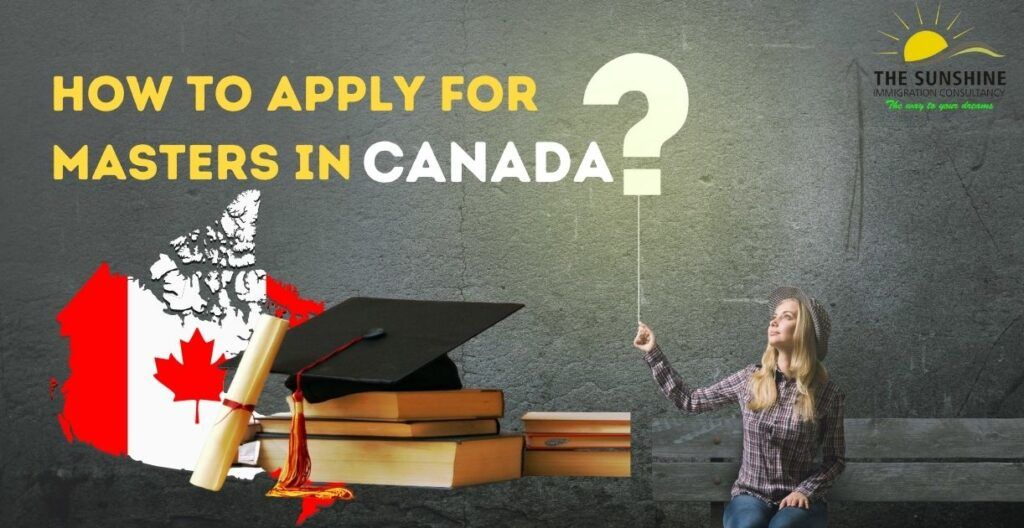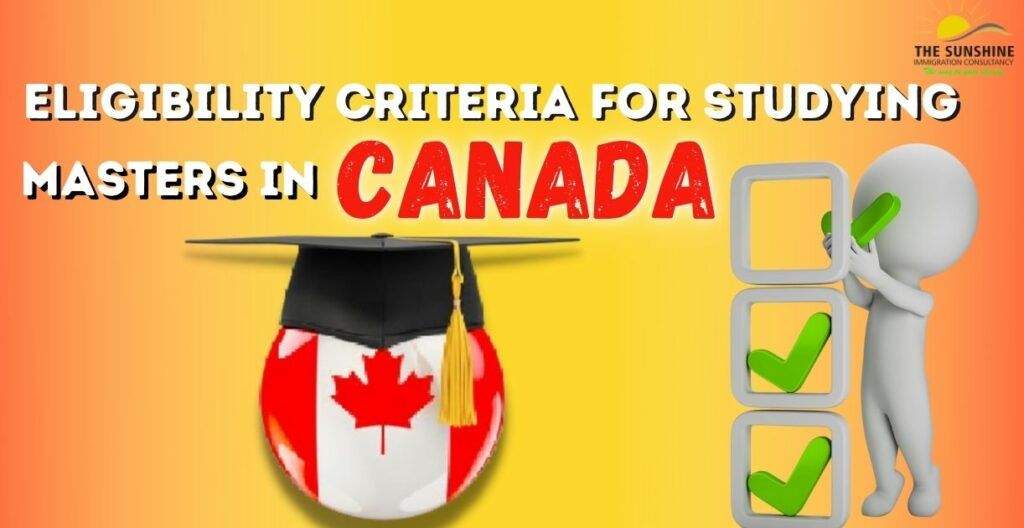Did you want to do Masters in Canada, Canada is a more cheap alternative for studying abroad. In Indian rupees, MS costs roughly 83 lakhs INR per year in Canada, costing more than one crore in the United States. Moreover, master’s degrees in this country of maple syrups are among the most lucrative courses to pursue among study abroad applicants, offering world-class dynamic quality education at cheap rates. READ MORE:- CHEAPEST COUNTRIES TO STUDY ABROAD
The universities of Canada provide more than 15,000 postgraduate programs. This covers MS, MA, and other advanced degrees such as master’s degrees in engineering, fine arts, and business administration. MS tuition rates in Canada range from 3 to 60 lakhs (roughly) INR per year for Indian students.
Why Study Masters in Canada?
Indian students account for 14% of all overseas students in Canada, making them one of the most important commercial and economic activity sources. Expenses are one of their main concerns. Thus institutes make every effort to attract this large demographic. This is one of the main reasons MS in Canada is relatively inexpensive in Indian rupees at most institutes.
The educational standards and procedures in Canada are among the best in the world. It is regarded as one of the best places to study Masters in Canada, costing Indian rupees, because of its highly educated and talented staff. Many online colleges provide international degrees and diplomas through online education, and MS in Canada is reasonable in Indian rupees at most institutes. One can even work with the same degree these universities offer without worrying about studying overseas, living in another country, and paying astronomical tuition expenses. In whichever field he chooses, such a guy can achieve enormous success.
| Type of expense | Cost (in INR) |
| IELTS/TOEFL (one-time) | 14,000 |
| Application Fees (one-time) | 6,000 to 11,000 |
| Tuition Fees (yearly) | 3 to 60 lakhs (approx) |
| Books and Materials (yearly) | 50,000 to 1 lakhs |
| Accommodation (yearly) | Up to 7 lakhs |
| Purchase of GIC (one-time) | 5,50,000 |
| Visa Application fees (one time) | 8,000 |
| Biometric for Visa fees (one-time) | 4,500 |
| Air Fare (one way) | 1,00,000 (approx) |
| Food and Beverages (yearly) | Up to 2 lakhs |
| Health insurance (yearly) | 50,000 |
| Personal and household | 100,000 |
| Total | 83,00,000 (approx) |
Many Canadian colleges require an applicant to have completed 16 years of school, including a four-year Bachelor’s degree. In addition, candidates must have a minimum GPA of 3 on a scale of 4 to be considered. So, 65–70% of the time, or a CGPA of 7.0–7.5 in Indian norms.
Students prefer to pursue Masters in Canada, grees in Canada since it is less expensive than in other countries, such as the United States. A master’s degree program usually lasts one or two years. As previously stated, a master’s degree costs between Rs. 8 lakh and 14 lakh, or CAD 16,250 and $28,650 a year.
Cost of living in Canada:
The cost of living is also an essential factor for international students studying in a foreign country. The cost of living is also affected by other factors, such as the individual’s lifestyle choices. They could be a spender with a lot of money or a spender with a lot of money. It is necessary for living expenditures.
Candidates who cannot cover their living expenses can work part-time jobs; there are numerous possibilities open to students. Universities also allow you to work off-campus for a short length of time. As a result, there are no commitments.
How to Apply for Masters in Canada

Why Study Masters in Canada?
The process of applying to graduate school in Canada, from masters degrees to PhDs, can be broken down into three significant steps:
– Decide which degree you want.
– Find schools with the program that fits your needs.
– Apply for admission via the school’s application portal.
In addition to steps one and two, there are several additional steps that you can take to ensure the process goes smoothly.
Aside from the prerequisite of having a degree, you will also need to have a bachelor’s degree from an accredited university, either in Canada or internationally.
When choosing which program to apply for, it is essential to first check the prerequisites for the program and if you will be able to meet the requirements. For example, some programs require applicants to have experience teaching in a different country. Some reach out through Skype before deciding on who they will accept as an applicant.
Health Insurance for International Students in Canada
Canada is a common destination for international students.
There are many reasons for this, including the availability of affordable tuition rates in universities and colleges and its proximity to major global hubs like London and Ottawa. In addition to being among the cheapest countries in the world concerning higher education, Canada also provides health insurance coverage — which is not always guaranteed elsewhere.
International students are very often interested in the health insurance coverage offered by Canada. This is because health insurance is usually regarded as a critical part of an international student’s lifestyle. It’s thought that taking care of a disease when abroad can be very expensive and even life-threatening. For example, if you fall ill in Japan, the chances of being able to afford the necessary medical attention are slim – which may end up costing thousands of dollars or more. Therefore, not making sure that you have access to medical coverage can result in serious financial consequences.
Job Prospects for International Students after Masters in Canada

How to Apply for Masters in Canada
As an international student, you are coming here with specific skills and experiences that other Canadians cannot offer you. As such, your chances of gaining employment should be much higher than someone from a traditional university background. In addition to the skills and experiences you have gained while studying here, you will also use these skills in the workplace. As a result, your chances of finding a suitable position upon graduation are much higher than someone from a traditional university background.
Let’s look at some of the most critical factors that contribute to an increase in employment after graduation.
1. Your Unique Experiences and Skills
You will be coming into Canada with many years of post-secondary education, thus giving you more experience and skills than other Canadians. You will also have a deeper understanding of the Canadian way of life, which will make it easier for you to adapt to life in Canada.
2. Your Work Experience
Many people consider work experience as an essential factor in gaining employment after graduation. After all, other Canadians may not have the specific work experience that you gained while studying here at SGS. This is why some employers may feel that you are more qualified than other Canadians who do not have any formal post-secondary education. Also, remember that having experience working with people daily can improve your resume and help you gain employment faster after graduation.
3. Your English and Computer Skills
You will have had a lot of exposure in the Canadian workplace as an international student. You may have worked at one of the many on-campus jobs that SGS offers to students like you. You may also have worked for a company as a part-time job during your studies here in Canada. Either way, these work experiences will help you gain much-needed exposure and improve your English skills, computer skills, and more. Masters in Canada, The more skills you gain while studying in Canada, the more likely employers would be interested in hiring you after graduation.
List of top universities that offers MS along with their tuition fees:

How to Apply for Masters in Canada
University Tuition Fees (INR)
University of Waterloo 3,42,949
University of Toronto 10,10,041 to 11,13,887
University of British Columbia 4,44,555
McGill University 4,22,961
McMaster University 8,83,268
University of Alberta 5,16,378
University of Calgary 6,55,926
Eligibility Criteria for Studying Masters in Canada

Eligibility Criteria for Studying Masters in Canada
Aside from that, you must pass exams such as the IELTS, TOEFL, and PTE to demonstrate your English competence.
Some universities also require the GRE (Graduation Record Examination) or a subject-specific GRE to be eligible for admission, if not those mentioned above.
The exam’s requirements vary depending on the university and the program.
Aside from that, there are entrance exams to pass to be admitted to the desired program.
Part-Time Job While Studying Masters in Canada
If you are still an international student and need to make a living, or if you find it easier to budget with some income coming in, then you might want to consider looking for the perfect part-time job while studying.
There are many jobs that international students can do when they analyze their skill set, interests, and commitments.
It’s common for international students to have a part-time job when they study in Canada. However, it’s essential to know that you shouldn’t just rely on finding a job and then use it as your sole source of income; instead, Masters in Canada , you must understand how to manage your money so that you can make enough money flow in from your part-time job to pay for your daily expenses and get by with little leftovers.
Frequently Asked Questions

Masters in Canada
- Are Canadian masters recognized internationally?
- Is it possible for a student to study English in Quebec?
- What does it cost for Indian students to pursue a master’s degree in Canada?
- How long does it take to obtain a study permit in Canada?/li>
Do comment and tell us did you like this blog:- MASTERS IN CANADA PROS OR CONS AND FOLLOW US :- FACEBOOK, INSTAGRAM


Leave a Reply